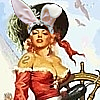Take a photo of a barcode or cover
Okay, if you're looking for a really intense history lesson with some really cool facts mixed in, this is the book for you. I found myself bored a lot of the time, but I was really interested in about a dozen facts. The concept is a really cool one, and I was hoping to retain more information, but I found myself zoning out for whole passages at a time. An added plus was that the audiobook is read by the author, which I always find as an extra perk. I feel like in another time, I might have been way more interested in this book, but I am rating it what I feel it deserves, since it was a very deep dive into a lot of elements of the home that I was unaware of previously.
This is a very interesting, comprehensive book that covers literally everything from why forks have four tines to the history of the British sewer system, but I found it rambled a little to much to be a very enjoyable read. The chapters, while divided into each corresponding inspiration (rooms in Bryson's parsonage house in Norfolk, England), seemed to ramble through whatever subject might relate to what he had previously been talking about- which made it very confusing to follow at times.
On the positive side, Bryson's unique perspective and sense of humor make the most random, mundane facts amusing- and from time to time he reminds us of that what we now consider strange used to be normal, and what we find normal would have been laughable in it's time. I don't consider this to be his best work, but it's still entertaining and interesting.
On the positive side, Bryson's unique perspective and sense of humor make the most random, mundane facts amusing- and from time to time he reminds us of that what we now consider strange used to be normal, and what we find normal would have been laughable in it's time. I don't consider this to be his best work, but it's still entertaining and interesting.
So much intense history packed into readable chapters! I enjoyed the romp through various parts of history, considering how the tiniest details in our lives came to be. Considering that I'm an enormous fan of the 99% Invisible podcast, this book fit the bill. Whether it's the history of the house structure, brick, concrete, garden planning, illness, medicine, electricity ... Bryson makes it fascinating and a worthy read. Certainly recommended if you like tidbits of history with a sense of humor.
What an odd rambling anecdotal kind of book. Sometimes very informative, sometimes wry with observations, sometimes just plain interesting. I liked it. Perhaps it was not the most straight forward way to lay down the history of home life, but it was terribly interesting.
I liked the structure of the book - you walked through a house room by room and discovered the history of the room from what it was to what it became and how it became that way. Many of the rooms on the first floor carried the history from early times in England but stayed relatively grounded in English history. As you moved through the house however more and more of shared history between the USA and England was explored.
I learned things about my own country I never knew. I learned things about other countries and ways of being I never knew. It was great fun and well written, if you like the history of ordinary things and perhaps what life was like for normal people way back when. Which I do.
I liked the structure of the book - you walked through a house room by room and discovered the history of the room from what it was to what it became and how it became that way. Many of the rooms on the first floor carried the history from early times in England but stayed relatively grounded in English history. As you moved through the house however more and more of shared history between the USA and England was explored.
I learned things about my own country I never knew. I learned things about other countries and ways of being I never knew. It was great fun and well written, if you like the history of ordinary things and perhaps what life was like for normal people way back when. Which I do.
I'm still waiting for a book of Bill Bryson that disappoints me. Actually, no, I'm not waiting for it, I'm hoping it will never happen. And with "At Home", Bill Bryson is continuing the winning streak of books that I found entertaining, interesting to read and that captured me for 500+++ pages on a topic that I never thought I would have so much patience for.
He's an excellent conversationist through his books, taking you along on a very long (though never boring) journey through the eigtheenth&nineteenth century. He doesn't tell the politicians' or the heroes' tales but the tales of "ordinary" people who made a difference in and around the house.
He's an excellent conversationist through his books, taking you along on a very long (though never boring) journey through the eigtheenth&nineteenth century. He doesn't tell the politicians' or the heroes' tales but the tales of "ordinary" people who made a difference in and around the house.
This was my first Bryson book and, as such, was absolutely not what I was expecting. I thought this would be an interesting, possibly fluffy, history of toasters,indoor plumbing, and the like. Instead, Bryson uses the floor plan of his home as a launching point for historical tangents in every direction. If you can get through the slow parts, when the personal lives of long-dead inventors are described in great detail, there are fascinating details to be had. I think the title is slightly deceiving as many of the facts and stories are loosely, if at all, related to home life. The book is much more a summary of the ways that life, both inside and outside the home, has dramatically changed in a (relatively) short period of time.
This took longer to read than expected, but it was so good. It is worth a read if you are at all interested in knowing how the world we live in, came to be
Lots of interesting tidbits in this book but far too long in my opinion. Could have easily been 100 pages shorter.
Thoroughly enjoyable - I do love a popular science/history book, and this was both. I was amazed at the amount of history in here is read before and recently. Having finished "Bonk", I knew some of the Victorian funerary practice stuff, but also "The Signature of All Things" covered a lot of natural history and Darwin information. But obviously they didn't have the same narrative context, so it was still interesting to hear.
If you have any interest in: This Old House, Antiques Roadshow, Iron Chef, archeology, anthropology, and ancient diseases this is the book for you. My original idea of what this book is about was completely different from what it actually is. Bryson tends to get off track a bit, but still an enjoyable read. My favorite part is how he got the idea for the book. He stumbled on a door in his attic, which led to a small deck. This deck provided a view of Norfolk (Norfolk has the most churches per square mile then any where else in the world), which is very similar view to the the person who originally built his home. This book is classic Bryson.






